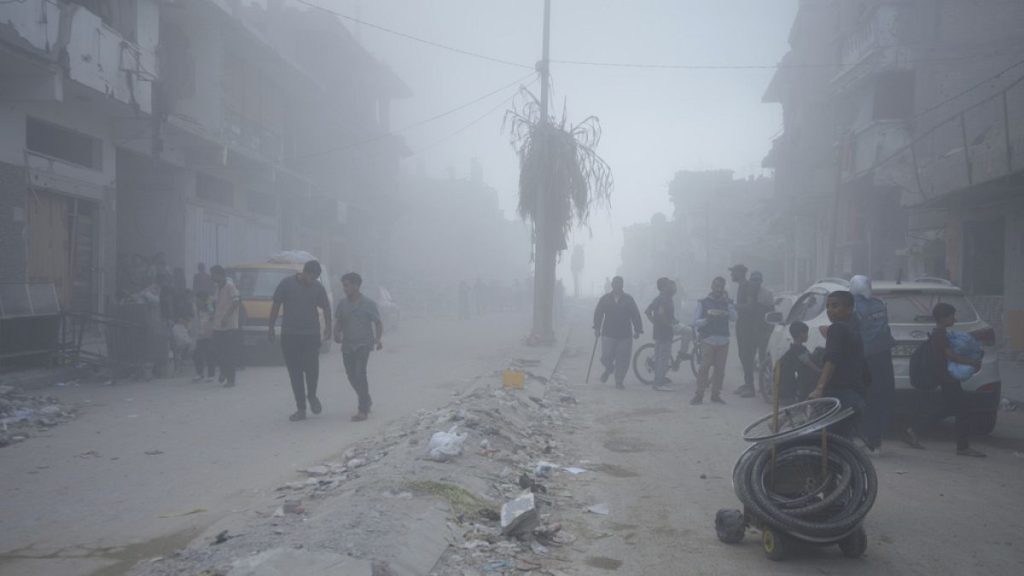Israel launched airstrikes in Gaza, targeting a school being used by displaced people, resulting in the deaths of at least 30 individuals. The strike was said to have targeted a Hamas command and control center used for storing weapons and planning attacks. Civil defense workers indicated that thousands were seeking shelter at the school, which also had a medical facility. Additionally, at least 12 people were killed in separate strikes on the same day. These attacks occurred as negotiations for a ceasefire were set to take place involving officials from the US, Egypt, Qatar, and Israel.
As part of the military operations against Hamas militants, Israel ordered the evacuation of a designated humanitarian zone in Gaza, specifically in Khan Younis. This evacuation impacted residents sheltering in Muwasi, a crowded tent camp where thousands of Palestinians had sought refuge during the conflict. The UN agency for Palestinian refugees expressed concern about the forced displacement caused by these orders, highlighting the challenges faced by those affected. The ongoing conflict began with an initial assault by Hamas militants on southern Israel, resulting in the deaths of over 1,200 people, primarily civilians, and leading to the hostage-taking of approximately 250 individuals.
The tragic incident in Gaza further intensified tensions between Israel and Hamas, with the former accusing the latter of using the school as a base for planning attacks against IDF troops. The strike resulted in a significant loss of life, including several individuals seeking shelter within the school premises. The situation posed challenges for humanitarian organizations in providing support to those affected by the violence, as thousands of displaced individuals were impacted by the evacuation orders issued by the Israeli military. The violence in Gaza underscored the urgent need for a ceasefire to prevent further casualties and alleviate the suffering of civilians caught in the conflict.
The escalation of violence in Gaza drew international attention, with negotiations for a ceasefire involving key mediators from the US, Egypt, and Qatar. CIA Director Bill Burns was set to meet with officials from Qatar, Mossad director David Barnea, and Egyptian spy chief Abbas Kamel to discuss ongoing efforts to secure the release of hostages and broker a truce between the warring parties. The involvement of various stakeholders reflected the urgency of the situation and the need for a coordinated diplomatic response to de-escalate the conflict and prevent further loss of life.
The conflict in Gaza highlighted the humanitarian crisis unfolding in the region, with civilians bearing the brunt of the violence and forced displacement caused by the hostilities. The evacuation orders issued by the Israeli military raised concerns about the welfare of those impacted, as they faced significant challenges in relocating to safer locations amidst the ongoing conflict. The tragic loss of life, including children and vulnerable individuals seeking shelter in schools, underscored the urgent need for a cessation of hostilities and a lasting ceasefire to protect civilian lives and facilitate humanitarian assistance to those in need.
As international actors worked towards finding a resolution to the conflict, the situation in Gaza remained precarious, with ongoing airstrikes and military operations causing further casualties and displacements. The involvement of key mediators and diplomatic efforts to negotiate a ceasefire reflected a recognition of the urgent need to end the violence and address the humanitarian crisis unfolding in Gaza. The tragic events in the region underscored the human cost of the conflict and emphasized the importance of a coordinated and sustained diplomatic response to bring an end to the hostilities and alleviate the suffering of civilians caught in the crossfire.


